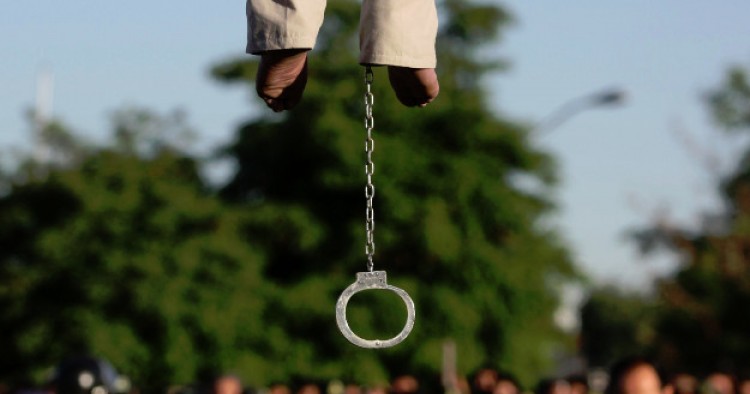A number of Iranians gathered in front of the country’s parliament on Saturday to protest the execution of drugs-related offenders, the Iranian media reports. The protestors, some of whom were family members of death-row convicts, called on lawmakers to abolish the practice of capital punishment for those convicted of drug-related crimes and commute their sentences. “We want the parliament to urgently pass its legislation that would replace the punishment of death penalty for drugs-related convicts so that their individual sentences are reduced,” one protestor told the Islamic Republic News Agency. The news outlet added that protestors had traveled from different Iranian provinces and cities to Tehran to attend the protest rally.
Comment: The Iranian parliament is working on legislation that, if passed, will amend the country’s laws regarding the practice of capital punishment for individuals convicted of drug-related crimes. According to the bill, which has already been approved by the judicial committee of the parliament, death penalty will be restricted to high-profile drugs smugglers. But while the parliament has been working on the legislation, Iran’s judiciary has recently called on judges to issue execution orders for drugs criminals “without delay.”
Last week, the top religious leader of Iran’s Sunni minority wrote to Supreme Leader Ali Khamenei to express his community’s concern over reports of a “secret order” issued by the country’s Judiciary to speed up the execution of Sunni death-row prisoners. Parts of the letter was published on the website of Mavlana Abdolhamid, the most prominent spiritual leader of Iranian Sunnis in the country’s southeastern Sistan and Baluchestan Province. He called on Khamenei to address the “Sunni community’s concerns,” and added that the latest spate of executions of Sunnis convicted on drugs-related charges reinforces the notion that the Judiciary’s directive actually exists.
About two-thirds of those executed in Iran have been convicted of drug-related crimes, and the Islamic Republic has the highest rate of execution per capital in the world. Last year, an Iranian lawmaker revealed that about 5,000 prisoners were awaiting execution in Iranian jails, and 90 percent of them were first-time drugs offenders between the ages of 20 and 30.
The Middle East Institute (MEI) is an independent, non-partisan, non-for-profit, educational organization. It does not engage in advocacy and its scholars’ opinions are their own. MEI welcomes financial donations, but retains sole editorial control over its work and its publications reflect only the authors’ views. For a listing of MEI donors, please click here.













